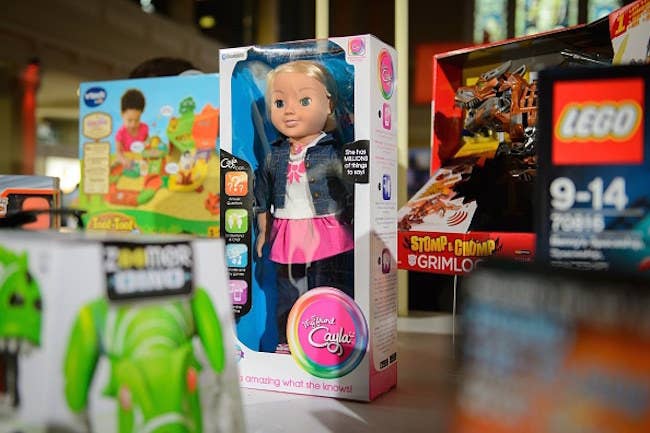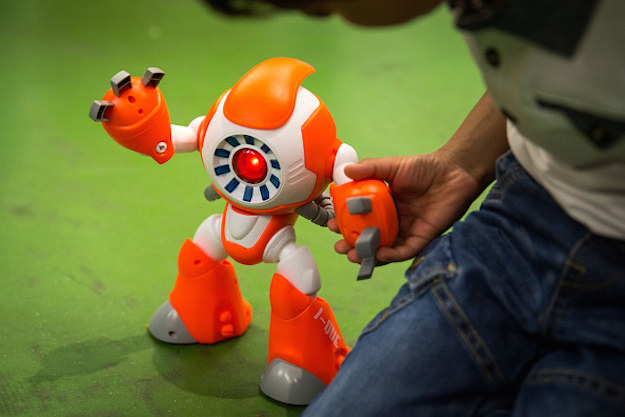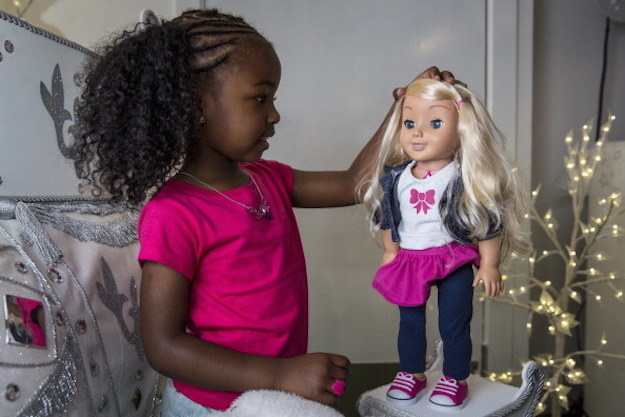
Two brands of talking dolls, My Friend Cayla and I-Que Intelligent Robot, collect personal information from children and send it to a software company that contracts with military and intelligence agencies, according to a complaint filed with the Federal Trade Commission on Tuesday.
The privacy groups that filed the complaint said the maker of the dolls, Genesis Toys, doesn’t get consent from parents before collecting their children’s voice recordings and personal information. That's a violation of the Children’s Online Privacy Protection Act, according to the complaint.
“With the growing Internet of Things, American consumers face unprecedented levels of surveillance in their most private spaces, and young children are uniquely vulnerable," said Claire Gartland, director of EPIC Consumer Privacy Project. “The FTC has an obligation here to step in and safeguard the privacy of young children against toys that spy and companies that exploit their very voices for corporate gain.”
Genesis Toys did not immediately respond to BuzzFeed News' request for comment.
"Children form friendships with dolls and toys with 'personalities,' and confide intimate details about their lives with them," said Josh Golin, executive director of the Campaign for a Commercial Free Childhood, in a statement. "It is critical that the sensitive data collected by these toys be subject to the most stringent protections and not be used for manipulative and sneaky marketing."
The My Friend Cayla doll, which is sold at Walmart for about $60, uses speech recognition technology, a microphone, and speakers to communicate with a child. The doll pairs with a smartphone and app, and when children speak to the toy, it connects to the app to generate an answer.
But to use the doll, a child must first answer several questions, including their name, their parents' names, their school, their hometown, and their physical location.
I-Que Intelligent Robot, sold for $90 on Amazon, also requires a smartphone app connected to the internet in order to function. But it also requests access to the smartphone's camera, which, the complaint alleges, "is not necessary to the toy’s functions and is not explained or justified."

It is difficult to find where the company details the information it collects. Cayla’s privacy policy doesn't mention speech data, nor does it describe the collection, use, or disclosure of such data by third parties. The I-Que privacy policy makes no
reference to such information collection. Genesis also tells consumers that their privacy policy is subject to change and recommends that parents check their website for regular updates.
Once that data is collected, it is stored on a server provided by Nuance Communications, a voice recognition technology company that also contracts with military and intelligence agencies. Cayla's privacy policy indicates that this
information may also be stored on Google's server.
"We have adhered to our policy with respect to the voice data collected through the toys referred to in the complaint," Nuance said in a statement. "Nuance does not share voice data collected from or on behalf of any of our customers with any of our other customers."
The company's privacy policy says it "may use the information that we collect for our internal purposes to develop, tune, enhance, and improve our products and services, and for advertising and marketing consistent with this Privacy Policy."
This isn't the first time the internet-connected dolls have faced backlash. Several European consumer organizations have also filed formal complaints with EU regulators, and with data protection, consumer protection, and product safety agencies, about the toys in France, the Netherlands, Belgium, Ireland, and Norway.


